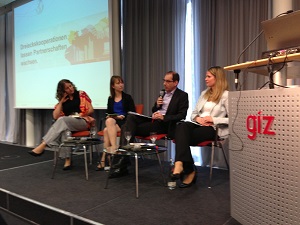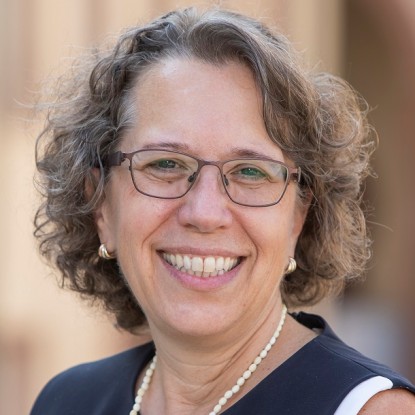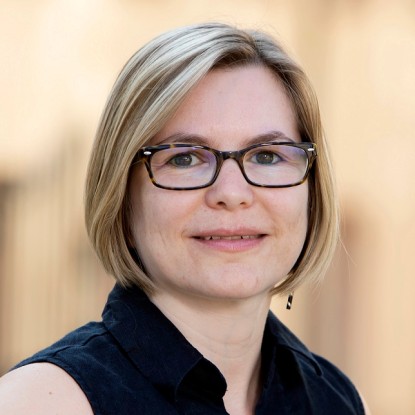Final project workshop

The final project workshop took place in Brussels, within the premises of the Representation of the State of Hessen to the EU. At this workshop the chapters of the final book publication were being discussed.

The internal workshop was followed by a public evening event, which as well took place within the premises of the Representation of the State of Hessen to the EU. At this event, Prof. Mohan Munasinghe, former vice Chair of the Intergovernmental Panel of Climate Change (IPCC) and Nobel Prize Laureate 2007 (on behalf of the IPCC) held a keynote speech on international climate and energy governance in broader context. Key findings from the project and its sister project EXIE were presented by Prof. Michèle Knodt and Prof. Natalia Chaban (University of Canterbury, New Zealand).

This was followed by a panel discussion “External Energy Relations in a Polycentric World” where perspectives from the BICS and the EU were highlighted. The audience consisting of representatives of the EU-Commission, EU-Parliament, media etc engaged themselves in the following discussion.

“The EU and global energy governance: External perceptions of the EU in the eyes of BRICS vis-a-vis EU self-visions”: At the seminar, Prof. Martin Holland introduced the students of International Relations to the research field of External EU perceptions, Prof. Michèle Knodt and Prof. Natalia Chaban presented both energy projects and the event was closed up with a discussion.
April 22nd – 26th 2014, Pretoria
The EXIE project had its final workshop and data evaluation at the University of Pretoria in South Africa. These results were presented in a public event to the South Africa goverment, the diplomatic as well as the academic community in Pretoria on April 25th.


The annual Darmstädter Energy Conferences have gained great popularity within the German academic energy discourse. Practitioners and researchers discuss future energy trends, policies and paths towards an overall energy transition. Our project was presented and received great feedback during this event.
November 7th 2013

In a joint panel discussion organized by the Schader Foundation and TU Darmstadt, distinguished panellists discussed questions of an energy transition with special emphasis on the local level. The German energy transition requires energy political decisions on the local level. Yet, these deep transformations of energy supply is also embedded in an international context, which is highly fragmented and driven by various national and regional interests. Rising energy demand, climate change and environmental problems are global challenges.
One of the main tasks in this regard is to find a balance between effective climate protection and the right of emerging and developing countries to economic development and rising living standards.
Prof. Mohan Munasinghe was Vice-Chair of the International Panel on Climate Change (IPCC) and received the 2007 Nobe Prize on behalf of the IPCC. His personal contribution always was in fuelling discussions on climate change policies and fair and equal chances for development.
Besides Prof. Mohan Munasinghe, the panellists were: Prof. Michèle Knodt, Jochen Partsch, Dr. Klaus-Michael Ahrend and Dr. Marie-Luise Wolff-Hertwig.

The international workshop „Europe and Global Challenges“ in the Herrenhausen Palace, Hannover, brought together the ten research projects, which are currently funded within the programme “Europe and Global Challenges”. Representatives of the three foundations (VolkswagenStiftung, Riksbanken Jubileumsfonds Stockholm, Compagnia di San Paolo) and the external reviewers joined the research team members in an exchange of ideas, first research results and experiences between the different projects as well as in discussions on an outlook for future research perspectives. Our project team organized the event and presented first research results.

Third Project Workshop: Our third project workshop took place at The Energy and Resources Institute’s (TERI) Green Campus outside New Delhi. All of our project partners presented their latest research results and we discussed the next steps for our final publication (forthcoming in 2014).
Our internal workshop was followed by the public conference “EU-India: Understanding the Challenges and Opportunities for Energy Cooperation” on September 4th, 2013 in India Habitat Centre, New Delhi. It was organized by our Indian project team at TERI and TU Darmstadt in order to discuss relevant issues for EU-Indian energy cooperation with a broader audience. Representatives from politics, academia and the private sector had been invited. The program started with a session on “EU-Emerging Powers: Sustainable, secure, and competitive energy engagement”, and aimed to give an overarching view of the research conducted in the VW project. The project partners (Nadine Piefer, Franziska Müller, Swati Ganeshan, Madhura Joshi, Suet-Yi Lai, Aline Ribas, Judy Smith-Höhn and Agathe Maupin) presented their results on cooperation between the EU and the four emerging powers. This was followed by a panel on multilateral and bilateral ties between India and the EU, which allowed gathering insights into formal and informal cooperation/coordination networks in the field of energy and development cooperation. The third panel focused on different cooperation forms in the energy sectors between EU and India. Here, the activities of transnational actors were discussed. Jens Steffek from TU Darmstadt presented a research framework for exploring transnational activities, which was complemented by views of the entrepreneurial side by panelists from Suzlon, NTPC Limited as well as India's Ministry of Power. The last session finished with a view at “The way forward: How could India-EU energy cooperation be enhanced?” Here, the panelists highlighted opportunities for an enhanced EU-Indian cooperation.

„Three is a lucky number!“ Or why not cooperate in a triangle? These and similar questions were the starting point for a joint project between TU Darmstadt and the Deutsche Gesellschaft für Internationale Zusammenarbeit (GIZ). Triangular cooperation is a relatively new mode of development cooperation, which brings together a traditional donor (e.g. Germany or other OECD DAC donors), a new donor (e.g. BRICS or other rising countries) and a recipient country. There are many cross-cutting areas with the energy governance projects, e.g. in the Brazil-EU energy dialogue where triangular cooperation with African countries (Mozambique, Kenya) in the biofuels sector is one of the main topics discussed. The results of the GIZ-TU Darmstadt project were presented in the book launch of “Triangular Cooperation. A guideline for working in practice” in Eschborn on April 30th 2013.
Publication
Langendorf, Julia, Nadine Piefer, Michèle Knodt, Ulrich Müller and Lena Lázaro (2012): Triangular Cooperation. A guideline for working in practice, Nomos, Wiesbaden.
Michèle Knodt and Nadine Piefer have presented the project to a New Zealand audience by giving a keynote speech on “Energy and the Multipolar World” at the Jean Monnet Annual Event “Energy and the Multipolar World: Views from Brazil, Russia, India, China, South Africa and Europe” at the National Centre for Research on Europe (NCRE), Canterbury University, New Zealand, They discussed which roles the European Union and the BICS (Brazil, India, China and South Africa) can take up in global energy policies. Their input was followed by the presentations of first research results of the EXIE Project. In two panels self- and media images in the energy field were discussed from a BRICS and European view.

Kirsten Westphal published two papers on renewable energies. “Globalizing the German Energy Transition” (opens in new tab) comments on the possibilities of transfering the German model of phasing out nuclear power and decarbonising the energy supply. Together with Sybille Röhrkasten she argues that IRENA can play an important role in energy cooperation and in ad-vancing renewables globally. The article is called “IRENA: Stay the Course!” (opens in new tab). Both articles are published in SWP Comments. Find out more about publications by the international team of researches of the project here.

Our project is exploiting synergies with the large international “External Perceptions of the EU” projects, based at University of Canterbury, Christchurch, New Zealand. Together with the University of Victoria, Canada, the project leaders have successfully applied for a Jean Monnet Programme research grant to establish the research project “External Images of the EU: The EU as a Normative Energy Player” (EXIE). The project focuses on, how the EU’s external energy policies are perceived in the BRICS as well as in key member states (Germany, France, UK) by using methods of media analysis and monitoring. EXIE’s kick-off conference with 13 international researchers from the BRICS, France, Germany, UK and New Zealand was held at TU Darmstadt from Nov. 8th – 12th. Find out more!
The conference “Project Europe – Between Solidarity and Disintegration” by ECSA Germany (European Community Studies Association) is going to take place in Darmstadt. Prof. Dr. Michèle Knodt and Nadine Piefer from the project “Challenges of European External Energy Governance” will give a presentation about “Energy Policy and Solidarity”.



